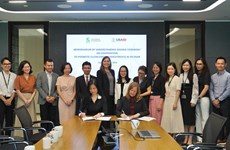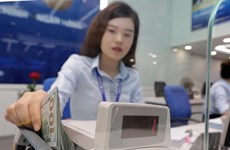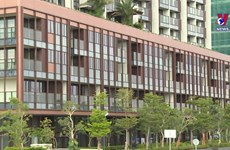Japanese businesses heavily invest in Da Nang
Named as one of the top five
foreign investors in the central city of Da Nang, Japan now has more
than 90 businesses and representative offices operating in the city with
investment exceeding 370 million USD, equivalent to 30 percent of the
locality’s total inflow of foreign investment.
In the first
nine months of this year, the city gave permission for five Japanese
investment projects worth a total of 31.4 million USD.
Generating jobs for around 30,000 labourers, Japanese firms in the city
are on the whole operating effectively and contribute greatly to the
local budget and the city’s annual average growth rate of 11 percent.
Now, the Japanese enterprises, specialising in the fields of
paper, seafood and agricultural product processing, the restaurant
business, electronic components and software outsourcing, are moving
their investments towards high technology and quality services.
Besides investing on their own, the foreign firms have encouraged others to enter the city.
Specifically, in addition to its 40 million USD investment in the Da
Nang High-Tech Park, the Tokyo Keiki Incorporation urged Niwachuzo
Company to pour 22 million USD into the park.
The aforesaid
ventures signal the beginning of a strong wave of investment from
Japanese firms in the city, which also helps the locality attract
investment from other foreign enterprises.
To accelerate
foreign investment, the city now has four Japanese training centres and
hundreds of university undergraduates studying the Japanese language,
along with nine restaurants serving Japanese dishes.
In fact,
Japanese investment is concretised by the efforts and commitments of
Japanese representative agencies and firms in Vietnam.
Japanese
corporations and businesses always choose Da Nang as a crucial
investment partner as it meets the firms’ requirements for a favourable
investment climate, socio-economic conditions and facilities, said
former Japanese Ambassador to Vietnam Yasuaki Tanizaki during his Da
Nang visit in August.
In further improving its investment
environment, the city has held several conferences in the Japanese
cities of Tokyo and Osaka, aiming to attract more investment from the
country’s companies in its high-tech zone in the time to come.
Japanese firms seeking investment opportunities in Da Nang are able to
invest in the electricity industry, electronics, optical and
communication technologies, manufacturing machinery, nanotechnology and
medical equipment.-VNA













